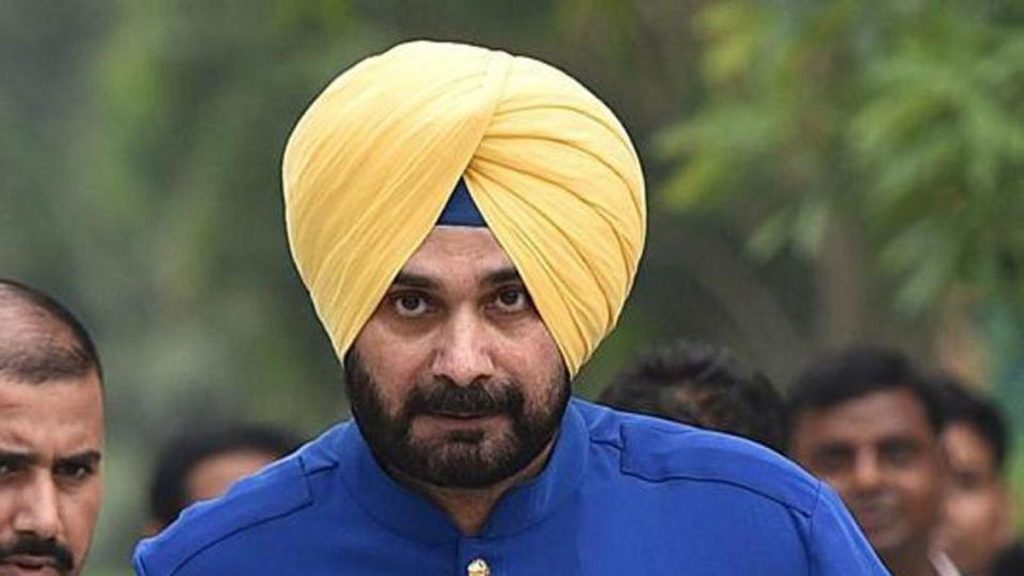New Delhi: The Supreme Court Thursday imposed a one-year sentence on cricketer-turned-politician Navjot Singh Sidhu in a 1988 road rage case.
A bench of Justices A M Khanwilkar and S K Kaul allowed the review plea filed by the victim’s family on the issue of the sentence awarded to Sidhu.
Though the apex court had in May 2018 held Sidhu guilty of the offence of “voluntarily causing hurt” to a 65-year-old man in the case, it spared him a jail term and imposed a fine of Rs 1,000.
“…..We feel there is an error apparent on the face of record….Therefore, we have allowed the review application on the issue of sentence. In addition to the fine imposed, we consider it appropriate to impose a sentence of imprisonment for a period of one year….,” the bench said while pronouncing the verdict.
In September 2018, the apex court had agreed to examine a review petition filed by the family members of the deceased and had issued the notice, restricted to the quantum of sentence.
The top court had earlier asked Sidhu to file his response on the application which had said that his conviction in the case should not have been merely for the lesser offence of voluntarily causing hurt.
Sidhu had March 25 told the top court that the plea seeking enlargement of the scope of notice in the matter relating to review of the sentence awarded to him was an “abuse of process”.
In a reply filed to the application seeking enlargement of the scope of notice, Sidhu had said the apex court, after a careful perusal of the contents of the review petitions, has restricted its scope to the quantum of sentence.
Read Also – Ukraine war could soon cause global food crisis that may last for years
“It is well settled that whenever this court issues notice confining to sentence, arguments will be heard only to that effect unless some extraordinary circumstance/material is shown to the Court. It is respectfully submitted that the contents of the present applications reiterate only overruled arguments and do not show any extraordinary material, calling for interference on all aspects from this court,” the reply had said.
It had said the apex court had perused the entire evidence on record, including the medical evidence, to conclude that cause of death of Gurnam Singh could not be ascertained.
Sidhu had said as there was no evidence whatsoever that the “death was caused by the single blow by the answering respondent (even assuming the incident did take place), this court rightly concluded that the same would fall under section 323 IPC.”
Section 323 (punishment for voluntarily causing hurt) of the Indian Penal Code entails a maximum jail term of up to one year or with a fine which may extend to Rs 1,000 or both.
The apex court had May 15, 2018, set aside the Punjab and Haryana High Court order convicting Sidhu of culpable homicide and awarding him a three-year jail term in the case, but had held him guilty of causing hurt to a senior citizen.
The top court had also acquitted Sidhu’s aide Rupinder Singh Sandhu of all charges saying there was no trustworthy evidence regarding his presence along with Sidhu at the time of the offence in December 1988.
Later in September 2018, the apex court had agreed to examine a review petition filed by the family members of the deceased.
The apex court’s May 2018 verdict had come on the appeal filed by Sidhu and Sandhu challenging the high court’s 2006 judgment convicting them.
According to the prosecution, Sidhu and Sandhu were in a Gypsy parked in the middle of a road near the Sheranwala Gate Crossing in Patiala December 27, 1988, when the victim and two others were on their way to the bank to withdraw money.
When they reached the crossing, it was alleged, that Gurnam Singh, driving a Maruti car, found the Gypsy in the middle of the road and asked the occupants, Sidhu and Sandhu, to remove it. This led to heated exchanges.
Sidhu was acquitted of murder charges by the trial court in September 1999.
However, the high court reversed the verdict and held Sidhu and Sandhu guilty under section 304 (II) (culpable homicide not amounting to murder) of the IPC in December 2006.
It had sentenced them to three years in jail and imposed a fine of Rs 1 lakh each on them.
